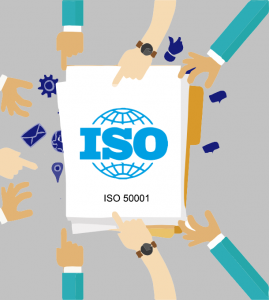An Overview of ISO 50001
ISO 50001 is an international standard that provides guidelines for energy management systems. It helps organizations to establish an Energy Management System (EnMS), which can be used to improve energy performance and save money. ISO 50001 certification is a validation indicating that your organization has met the requirements of the standard and is committed to improving energy performance.
Importance
Organizations that implement ISO 50001 can improve their energy performance by saving money, reducing greenhouse gas emissions, and contributing to a more sustainable future. Organizations use energy in a variety of ways, and it is important to manage this resource efficiently. By doing so, organizations can save money, improve their environmental performance, and increase their competitiveness. Setting up an EnMS can assist organizations in optimizing their energy usage.
Benefits
- Helps an organization to save money by reducing energy consumption
- Implements best practices for energy management
- Aids in the identification of energy efficiency opportunities
- Encourages continual improvement of energy performance
- Promotes the use of renewable energy sources
- Facilitates international trade and market access
- Sends a positive environmental message to employees, customers, and other stakeholders.
- Foster a culture of energy conservation throughout the organization
Which Organizations Can Apply?
Any organization that wishes to improve their energy performance can apply for ISO 50001 certification, regardless of size or sector. This standard is suitable for organizations of all types and sizes that use energy, including but not limited to:
- Manufacturing
- Transportation
- Buildings (commercial, industrial, and residential)
- Oil and gas production
How to Get ISO 50001 Certified?
The first step is to develop and implement an energy management system that meets the requirements of ISO 50001. Once your organization’s EnMS is in place, you can begin the certification process.
The certification process begins with an application to a certification body. After receiving the application, the certification body will then conduct an audit to determine if your organization’s EnMS meets the requirements of ISO 50001. If the certification body determines that your EnMS is in compliance, they will issue a certificate of conformity.
Conclusion
ISO 50001 certification is a validation that an organization has implemented an Energy Management System (EnMS) and is committed to improving energy performance. Implementing ISO 50001 can help organizations save money, reduce greenhouse gas emissions, and contribute to a more sustainable future. The certification process begins with the development and implementation of an EnMS followed by an audit conducted by a certification body. If the EnMS is in compliance, the certification body will issue a certificate of conformity.
Read more for : ISO 50001 Training Course
